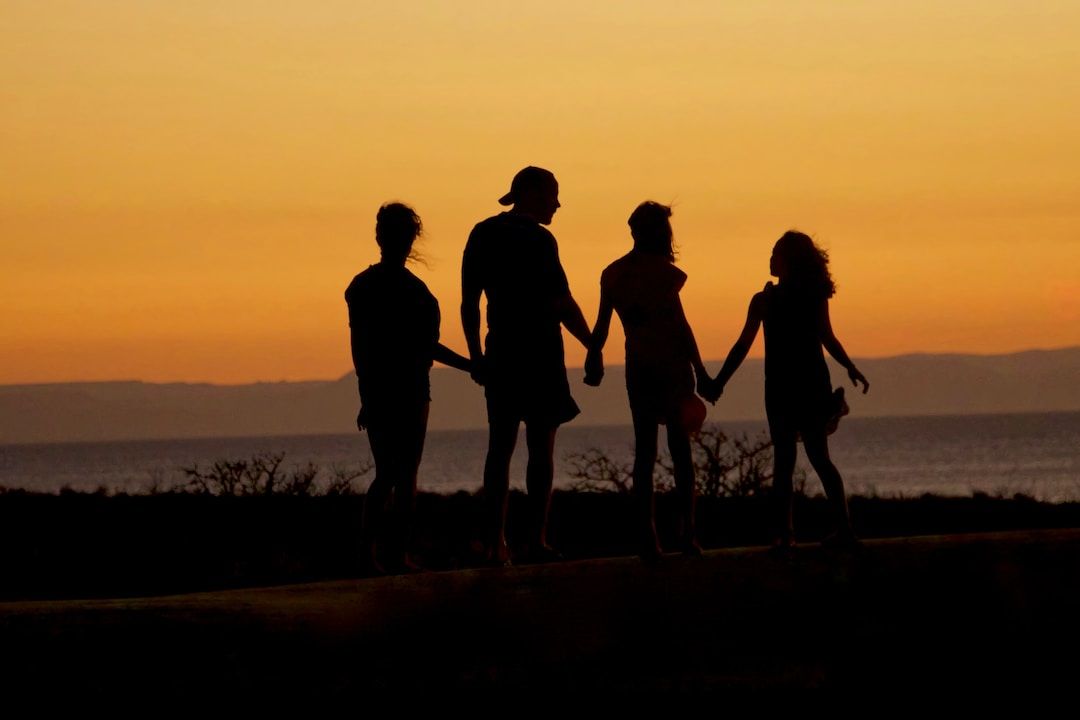
Nurturing Strength and Resilience: Understanding Adverse Childhood Experiences and Fostering Positive Environments for Healing and Growth
Aug 10
/
TEKU

Childhood is a precious stage that plays an instrumental role in shaping the trajectory of our lives. It is marked by a balance of innocence and vulnerability AND strength, rapid growth and the ability to value life’s most important aspects. As our understanding of Adverse Childhood Experiences (ACEs) and their impact on our overall development and health has increased, efforts have emphasized the need for collective efforts to mitigate their impact and foster positive growth in our kids, families and communities.
Defining Adverse Childhood Experiences (ACEs)
Adverse Childhood Experiences encompass a range of severely distressing events that children may encounter, such as abuse, neglect, household challenges, or witnessing violence. Research suggests that these experiences can have a lasting impact on physical, mental, and emotional well-being well into adulthood. Toxic stress, which occurs when children are exposed to prolonged and intense levels of ACEs or other types of stress without the necessary support to manage it can negatively impact growth and health.
The Power of Positive Childhood Experiences
Just as negative experiences can shape a child's life, the power of positive experiences can not be underestimated. Positive interactions, nurturing environments, and strong connections with caregivers can serve as protective factors against the negative impact of ACEs. A strong foundation of positive childhood experiences equips children with resilience, coping mechanisms, and a sense of self-worth that can help them navigate life's challenges.
Parental Mental Health: A Crucial Buffer
Parents are the primary caregivers in a child's life, and their mental health profoundly influences a child's well-being. Parental stress, anxiety, depression or other health conditions can add layers of stress to a family, possibly contributing to an environment of toxic stress for both kids and their caregivers. However, by supporting parents, we can foster foundational skills for families, such as prioritizing mental health, seeking support when needed, and modeling healthy coping strategies can create a buffer against the negative impact of ACEs for kids and the whole family.
Collective Approaches to Minimize the Harm of ACEs
Minimizing the harm of ACEs requires a collective effort involving individuals, families, communities, and institutions. Here are some strategies we can all consider, many of which we foster through our Teku community:
Education and Awareness: Raising awareness about ACEs and their potential impact is essential. Education empowers individuals to recognize and address the effects of childhood trauma, encouraging open discussions and reducing stigma.
Supportive Environments: Homes, schools, community centers, and other institutions can create safe and supportive environments for children. Programs and approaches that promote emotional well-being, conflict resolution, and resilience-building can counteract the negative effects of ACEs. At TEKU, we strive to create these empowering and supportive environments for caregivers belonging to diverse communities, giving them access to essential resources and tools to help with many challenges we face in our personal and professional lives.
Early Intervention: Identifying and addressing ACEs early can prevent the negative impacts on an individual’s health and the perpetuation of trauma across generations. Access to mental health services and counseling for both children and caregivers is crucial.
Parental Support Programs: Providing parents with resources and tools to enhance their parenting skills and mental well-being can have a positive ripple effect on their children's lives. That is why TEKU focuses on empowering caregivers to bring Positive Childhood Experiences into their homes. We have created our own comprehensive parenting course that provides evidence-based strategies, helpful live sessions that foster practice and community and self-paced, easy to follow modules filled with resources tailored to all caregivers. You can sign up for the course here.
Policy Changes: Policymakers can implement measures to support families, such as paid parental leave, affordable healthcare, and mental health services. These policies contribute to a more stable and nurturing environment for children.
Community Connections: Fostering strong community bonds provides children with additional sources of support and care. Social connections can act as a protective buffer against the negative impact of ACEs. This approach to health is emphasized by our Teku approach and community, as we foster collective growth, healing and health.
Collective growth, healing and health for all
Adverse Childhood Experiences can cast a long shadow over an individual's life, but they do not have to define it. The power of positive experiences and supportive environments can counteract the effects of ACEs, enabling individuals to develop resilience, emotional well-being, and the capacity for growth. Recognizing the importance of parental mental health and embracing collective strategies are key to minimizing the harm of ACEs on children. By coming together as a society, we can create a more compassionate and resilient future for the generations to come. Join our TEKU community to receive access to free resources, tools, healing spaces and community support.
Teku
-
Home
-
About
-
Our work
-
Contact us
-
Communities
-
Sign in
-
Blog
Copyright © 2023 TEKU Inc
